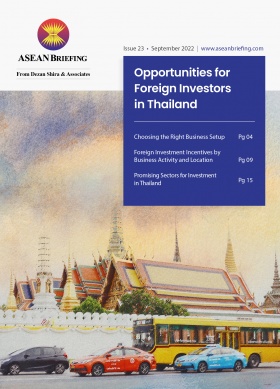Cambodia Increases Minimum Wage for Textile and Garment Sectors for 2023
Cambodia has increased its monthly minimum wage to US$200 from the current US$194. The minimum wage standard only applies to the textile, garment, and footwear industries.
Workers will continue to receive their benefits such as attendance bonuses, travel and accommodation bonuses, meal allowances, and overtime pay.
Cambodia’s government has agreed to increase the minimum wage for the country’s textile, garment, and footwear (TGF) industries to US$200 per month from the current US$194 per month. Unlike other countries, the minimum wage in Cambodia applies only to specified industries.
The National Council on Minimum Wage (NCMW), a tripartite body comprising equal representation of labor unions, employer’s associations, and the government sets the minimum wage. The Ministry of Labor and Vocational Training announced the results of a tripartite vote on four possible wage increases: US$198, US$206, US$210, and US$213. Of the 51 council members, 46 voted for US$198 which was increased to US$200 after an intervention by Cambodia’s Prime Minister Hun Sen.
In determining the minimum wage, the NCMW studies the following criteria:
- Inflation;
- Cost of living;
- Productivity;
- Competitiveness;
- Sector profitability; and
- The current labor market situation.
The new salary will be effective from January 1, 2023.
What other benefits do workers receive?
In addition to the minimum wage, workers will also receive the following benefits:
- Attendance bonus — US$10 per month;
- Travel and accommodation expenses — US$7 per month;
- Meal allowances — US$0.50 per day; and
- Overtime and seniority bonus — US$2-US$11 per month for those between their second to the eleventh year of work.
Workers on probation are to receive US$198 per month.
Workers who are paid based on productivity can earn more than the minimum wage; however, if the amount they produce earns them less than the minimum wage, then the employer has to add the remainder to a total of US$200 or US$198 for workers on probation.The textile, garment, and footwear industries continue to be the lifeline of Cambodia’s economy
Textiles, garments, and footwear manufacturing, or TGF continue to be the backbone of Cambodia’s economy, despite efforts to diversify. The industries are the country’s largest employers with over 700,000 workers and represent 80 percent of total export earnings.
Data from the Garment Manufacturers Association in Cambodia (GMAC) showcased that the export of textile-related products reached US$11.3 billion in 2021, an increase of 15 percent from 2020. From this total, garments accounted for approximately US$8 billion, footwear US$1.3 billion, and travel goods (backpacks, handbags, wallets, suitcases, etc.) US$1.4 billion, and other related products, US$0.49 billion.
Cambodia’s TGF industries suffered at the height of the pandemic with some estimates suggesting that half of all factories in the first half of 2020 had to halt production, either temporarily or permanently.
In early 2022, the Cambodian government launched the Garment, Footwear, and Travel Goods Sector Development Strategy 2022-2027 with its objective to develop TGF manufacturing into sustainable, high-value-added industries, capable of supporting economic diversification.
The strategy focuses on these key measures:
- Strengthen human resource capabilities to increase productivity and create better career paths for workers;
- Continue improving worker welfare and working conditions;
- Increase foreign and domestic foreign investment with a focus on producing high-end products; and;
- Develop new export markets.
Also Read:
- An Alternative Path to Market Entry in Asia – PEO in China, Vietnam, Singapore, Indonesia, and India
- Remotely Establishing Entities in Asia: China’s Mainland vs. Hong Kong vs. Singapore
- Complete HR and Payroll for Asia Powered by the Cloud and Our Experts
About Us
ASEAN Briefing is produced by Dezan Shira & Associates. The firm assists foreign investors throughout Asia and maintains offices throughout ASEAN, including in Singapore, Hanoi, Ho Chi Minh City, and Da Nang in Vietnam, Munich, and Esen in Germany, Boston, and Salt Lake City in the United States, Milan, Conegliano, and Udine in Italy, in addition to Jakarta, and Batam in Indonesia. We also have partner firms in Malaysia, Bangladesh, the Philippines, and Thailand as well as our practices in China and India. Please contact us at asia@dezshira.com or visit our website at www.dezshira.com.







